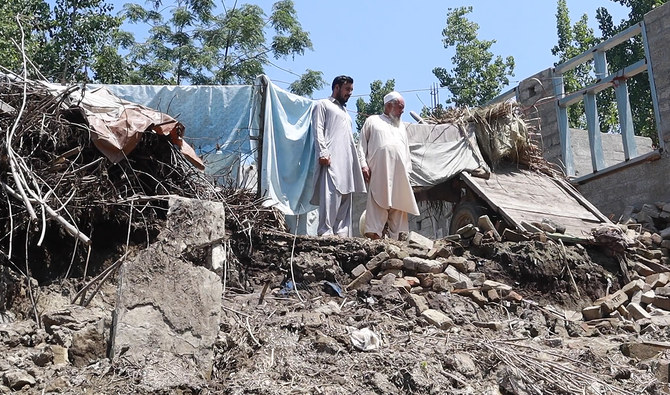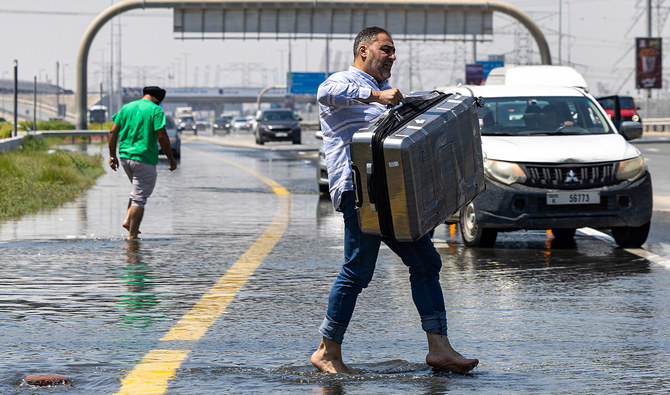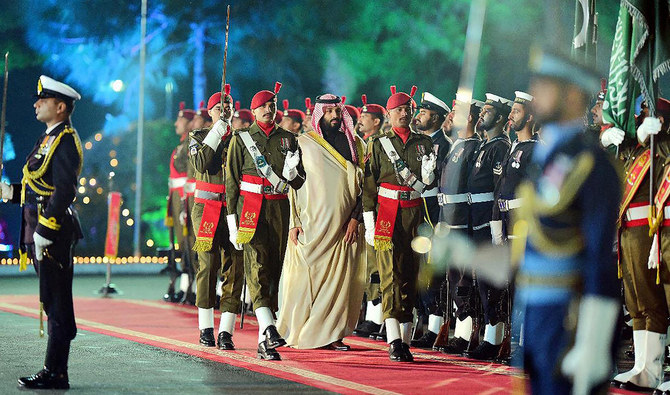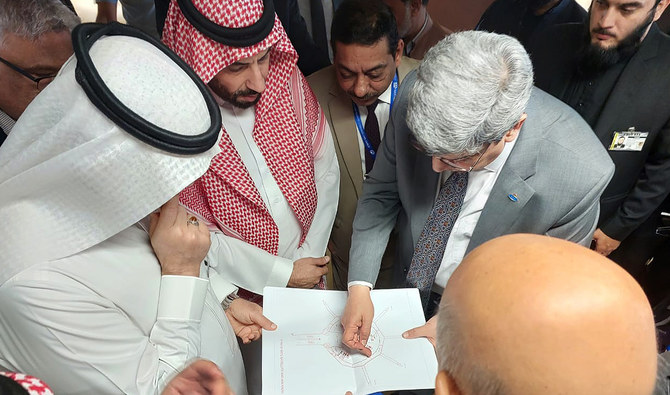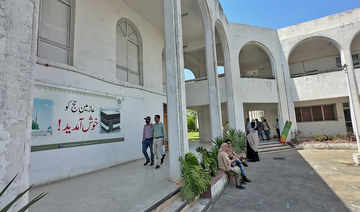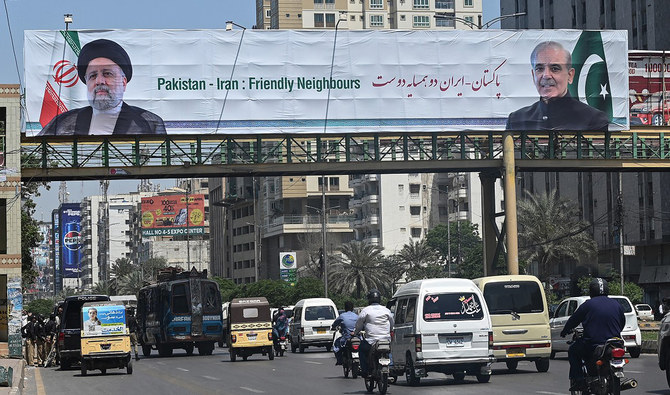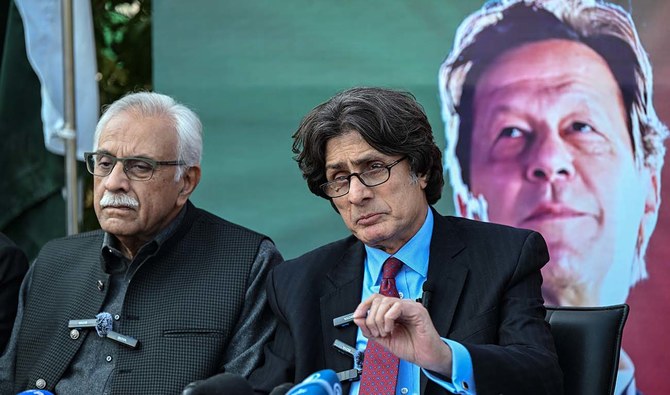CHARSADDA, Pakistan: Mian Awal Khan stared at the remains of his house, destroyed by flooding in the River Khyali earlier this month, and cried quietly into his sleeve.
This is the 10th time the 70-year-old would have to rebuild his house in Charsadda, a district in Pakistan’s northwestern Khyber Pakhtunkhwa province prone to floods after heavy rains.
At least 65 people have been killed and 80 injured in downpours and subsequent flooding in KP since Apr. 12. Charsadda district is one of the worst hit, with three rivers, Jindi, Khyali and Kabul, meeting downstream at the Shahbara village.
Unfortunately for Khan, his house initially stood on the banks of the River Kyali and was first washed away by floods in 2010. He built a new house 500 meters away from that spot after the river carved out a path for itself on his land.
Flooding would destroy his house many times again.
“This will be the tenth time I will rebuild my house,” an emotional Khan told Arab News, seated on the concrete remains of his three-room house.
“My house was washed away by the floods six times when it was over there [initial spot] and four times when it was here.”
Khan’s 35-year-old son, Mian Fawadullah, said the family was unable to save any belongings on the day of the flooding.
“When we were busy rescuing our children and women, this [destruction] happened to our house,” he told Arab News. “We didn’t take any household items as our life was in danger. We left everything just as it was in its place.”
The flood had cost the family Rs1.5-1.6 million [$5,385-$5,744], Fawadullah said, and also destroyed 108,900 square feet of fields as well as washed away livestock and filled the fields with mud at a critical time for farming.
“Farming has also vanished now,” he lamented. “The wheat and the sugarcane have rotten in the water. This is a real mess. We do labor, prepare the field and the river washes it away [every single time].”
“EATEN MY YOUTH”
Flood survivors say they want the government to build protection walls and put in place preventative mechanisms in a country consistently ranked among the most affected by climate change impacts.
Unprecedented rains in 2022 triggered flash floods that killed over 1,700 people and caused damages worth $33 million.
Ihsan Dawar, a public relations officer at the KP Provincial Disaster Management Authority, said the government was carrying out relief works, particularly to rebuild around 3,500 houses partially or fully damaged in the recent floods.
“Up until this time, about Rs200 million [$718,096] have been distributed among the victims of the fresh spell of rain incidents,” Dawar told Arab News.
But Khan has little hope floods won’t wreak havoc on his life again.
“The river is not going to spare it [my house] here also,” he said, adding that it was cutting at the edges of the land like a “butcher cutting meat.”
When asked what he would do now, he broke down and cried quietly.
“This is too difficult,” he said about having to rebuild his house yet again. “It has eaten all my youth.”



